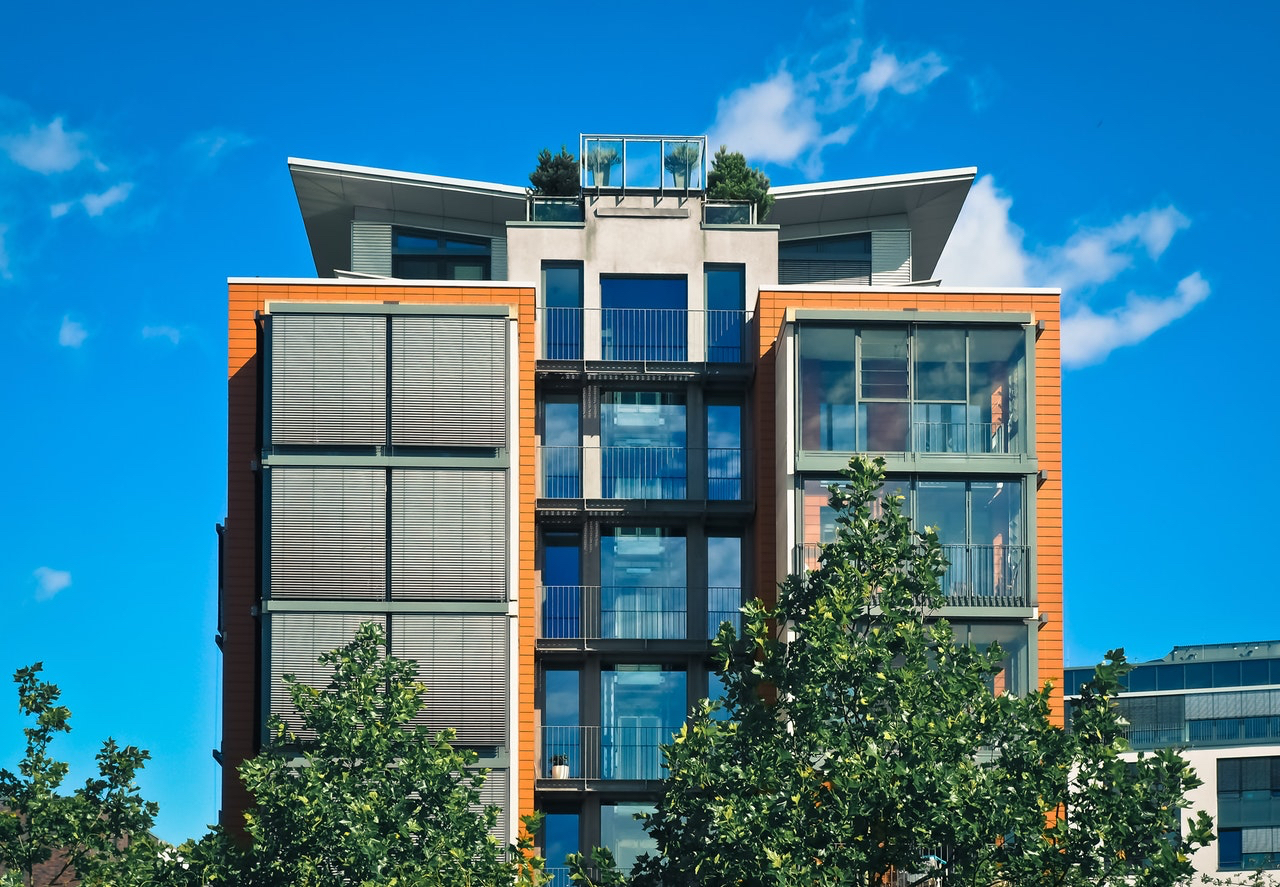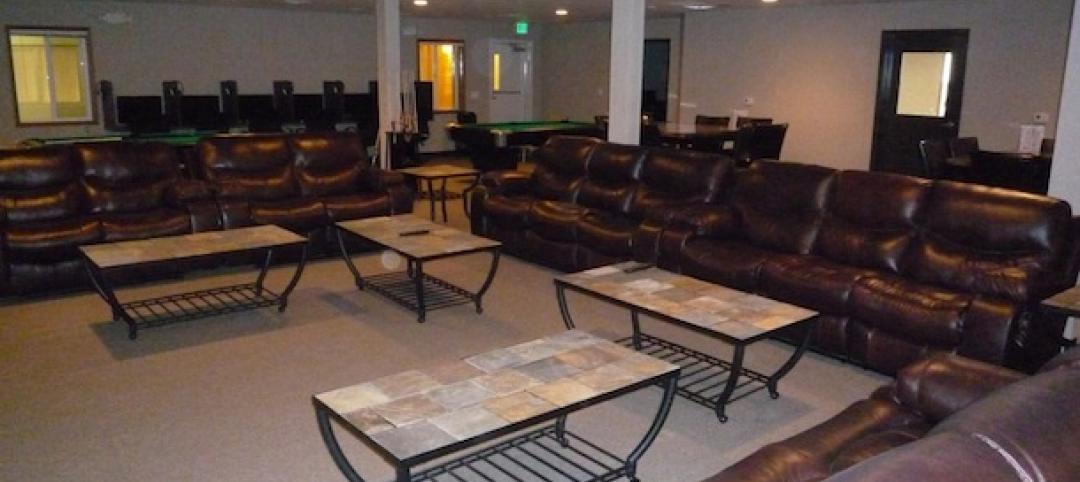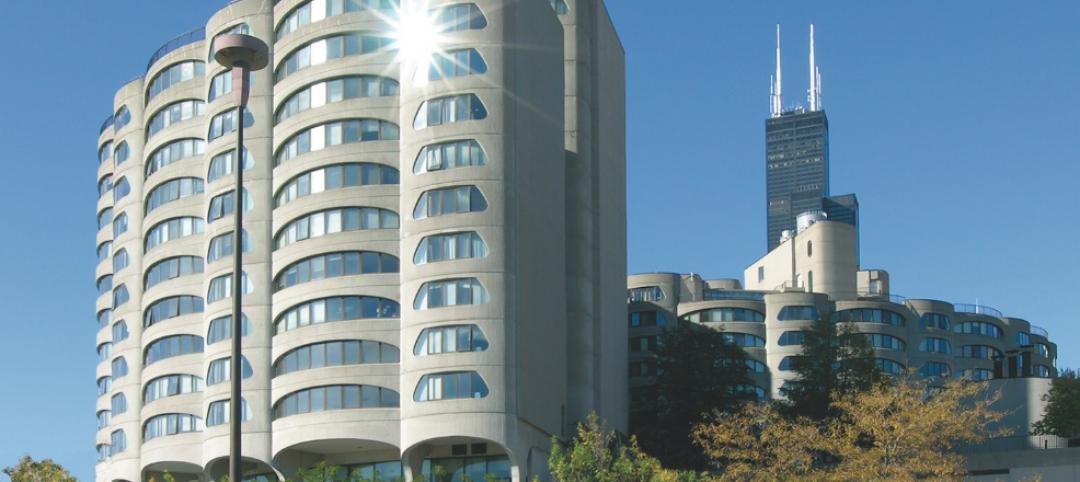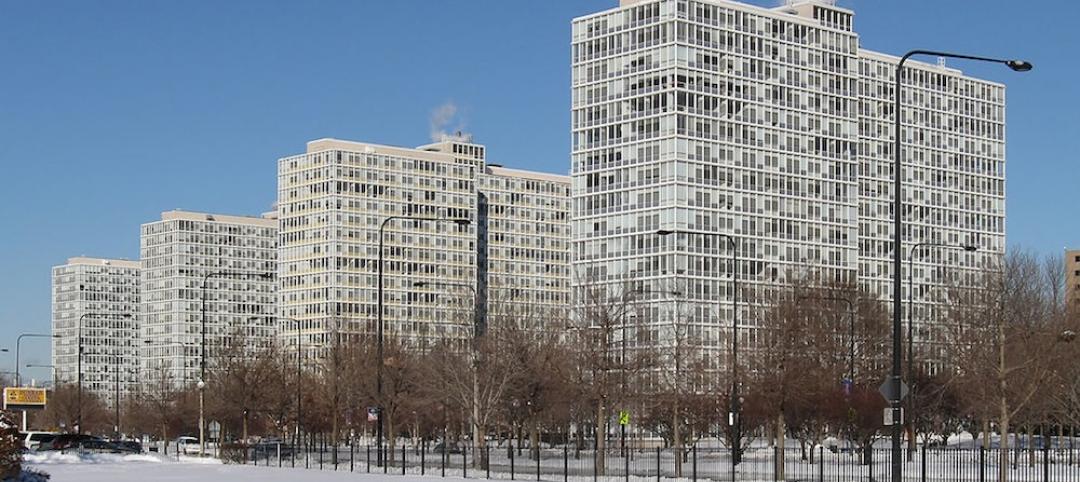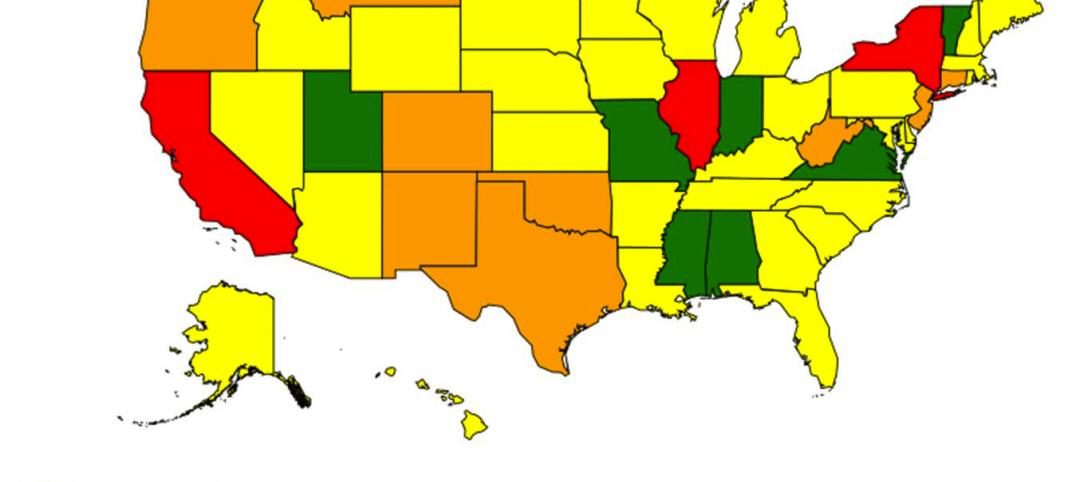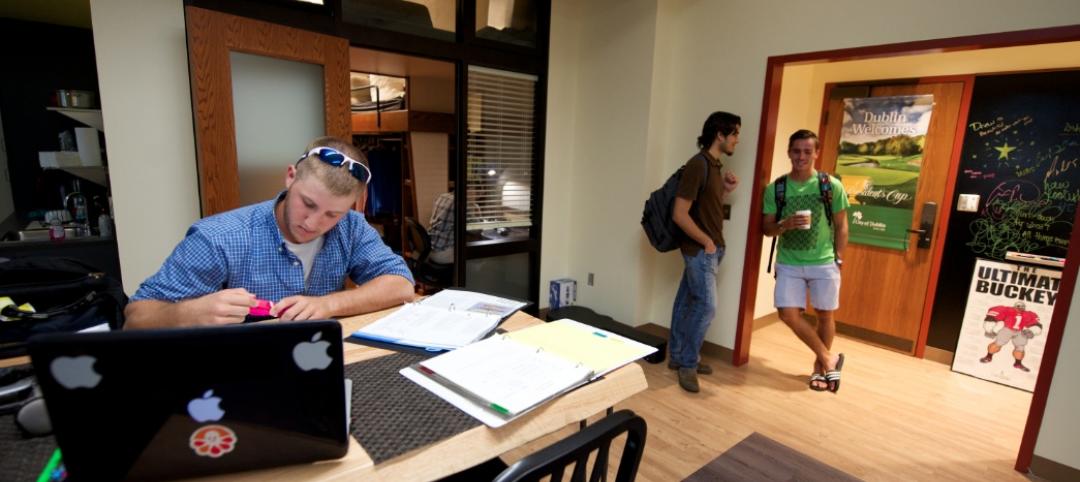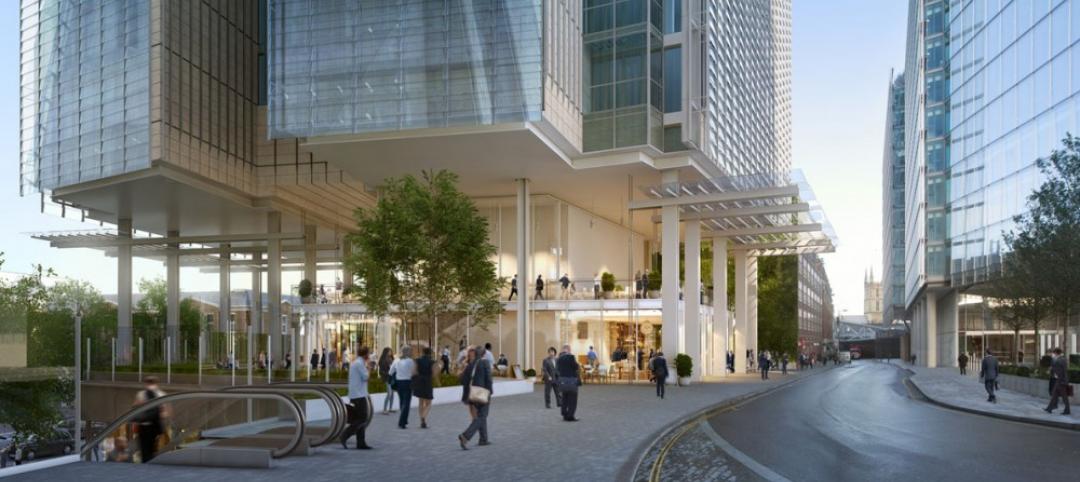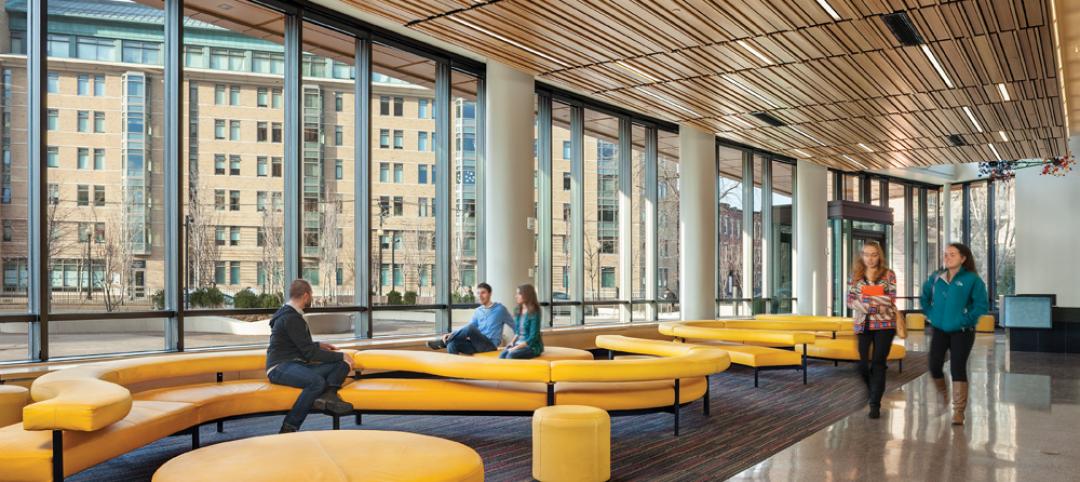Brace yourself. I’m about to unleash a tsunami of data to make the argument that the multifamily market is still going strong, despite all the sturm und drang about the coming global economic slowdown and its possible negative effect on apartment starts. Thanks to economist Danushka Nanayakkara-Skillington, the NAHB’s Assistant Vice President for Forecasting & Analysis, and Robert Dietz, PhD, NAHB Chief Economist, who presented the data at the 2019 NAHB International Builders’ Show.
Multifamily housing starts should hit 379,000 units this year. That’s 2% down from 2018’s 386,000, but well ahead (by 10%) of the average for multifamily starts from 2000 to 2007 and not that far off of the post-recession high of 394,000 in 2015.
Multifamily’s share of total housing under construction continues to run in the mid- to high-50% range. That’s probably because single-family construction has still not fully ramped up, although its slope is still up and to the right.
Rental production continues to dominate multifamily construction. The built-for-rent share of multifamily construction has held steady in the 90-95% range for the last five years. Somewhere in America there are brave souls who are building condominiums and for-sale townhomes, but apparently they are few and far between. Demand for rental at all price points continues to be the guiding force in the multifamily market.
According to the Joint Center for Housing Studies at Harvard University,
nearly half of all renters (47%) are “cost-burdened”: they pay more than 30%
of household income for their apartments. Of these 20.8 million cost-burdened
renters, 11.0 million pay more than half their family income for shelter.
Bigger projects provide the bulk of the units in completed multifamily buildings. Projects with 50 or more dwelling units supplied more than half (52%) of the 357,000 completed multifamily residences in 2017 (the last year for which U.S. Census Bureau data was available). Mid-size projects (10 to 49 units) accounted for 40% of completed dwelling units; projects with less than 10 residences yielded the remaining 7-8%. Scale matters.
Multifamily housing starts returned to 107% of normal in Q3/2018. Multifamily starts have returned to normal or above from the market bottom in 2009 in 27 states and the District of Columbia. Alabama is the only state that has not dug out of the trough since 2009.
The senior market may be slowing a bit, but it’s still positive. The NAHB 55+ Housing Market Index fell from a high of 68 in mid-2018, to 56 later in the year. Since any score over 50 indicates a positive attitude by builders and developers, it looks like the market influencers still see senior living facilities as a viable opportunity. My fellow baby boomers and I aren’t getting any younger.
To summarize, apartments are being built, and in goodly number. That’s the rosy side of the multifamily picture. The flip side is that not enough of it is affordable.
According to the Joint Center for Housing Studies at Harvard University, nearly half of all renters (47%) are “cost-burdened”: they pay more than 30% of household income for their apartments. Of these 20.8 million cost-burdened renters, 11.0 million pay more than half their family income for shelter.
Hardest hit: single-parent families and those over age 65.
Those are sobering statistics. What do you think can be done to address this problem?
Related Stories
Sponsored | | Dec 3, 2014
Modular Space Showcase: Bringing work-life balance to energy workers in the Bakken region
To meet the demands of the booming energy business, Williston needs to provide homes, recreation centers, restaurants, hotels, and other support facilities for the tidal wave of energy workers relocating to the Bakken Shale area. SPONSORED CONTENT
| Dec 2, 2014
First existing multifamily buildings to earn Energy Star certification unveiled
River City in Chicago is one of 17 existing multifamily properties to earn Energy Star certification, which became available to this sector on Sept. 16 via a scoring system for multifamily properties that Energy Star and Fannie Mae had been developing for three years.
| Dec 2, 2014
SPARK designs urban farming housing for Singapore’s elderly population
The proposal blends affordable retirement housing with urban farming by integrating vertical aquaponic farming and rooftop soil planting into multi-unit housing for seniors.
| Nov 24, 2014
Adrian Smith + Gordon Gill-designed crystalline tower breaks ground in southwestern China
Fitted with an LED façade, the 468-meter Greenland Tower Chengdu will act as a light sculpture for the city of Chengdu.
| Nov 24, 2014
Must see: Plans released for underwater city that could house 5,000 people
The design centers around a floating, 500-meter-wide sphere linked to a resource center on the ocean floor via a 15-kilometer, helix-shaped path.
| Nov 21, 2014
Rental apartment construction soars to 27-year high: WSJ report
The multifamily sector is now outpacing the peak construction rate in the previous housing cycle, in 2006, according to the WSJ.
| Nov 18, 2014
New tool helps developers, contractors identify geographic risk for construction
The new interactive tool from Aon Risk Solutions provides real-time updates pertaining to the risk climate of municipalities across the U.S.
| Nov 14, 2014
What college students want in their living spaces
In a recent workshop with 62 college students, architects from Little explored the changing habits and preferences of today's students, and how those changes affect their living spaces.
| Nov 11, 2014
Renzo Piano's third building at London Bridge Quarter approved, will be built adjacent to the Shard
Renzo Piano Building Workshop has been granted planning approval for its residential building at London Bridge Quarter—a 26-story apartment tower dubbed Feilden House.
| Nov 7, 2014
Arts college uses creative financing to build 493-bed student housing
Many states have cut back funding for higher education in recent years, and securing money for new housing has been tougher than ever for many colleges and universities. A recent residence hall project in Boston involving three colleges provides an inspiring example of how necessity can spawn invention in financing strategies.


